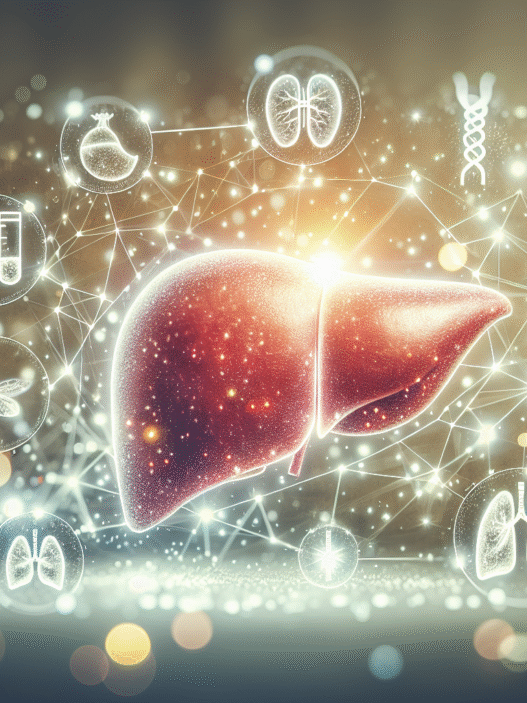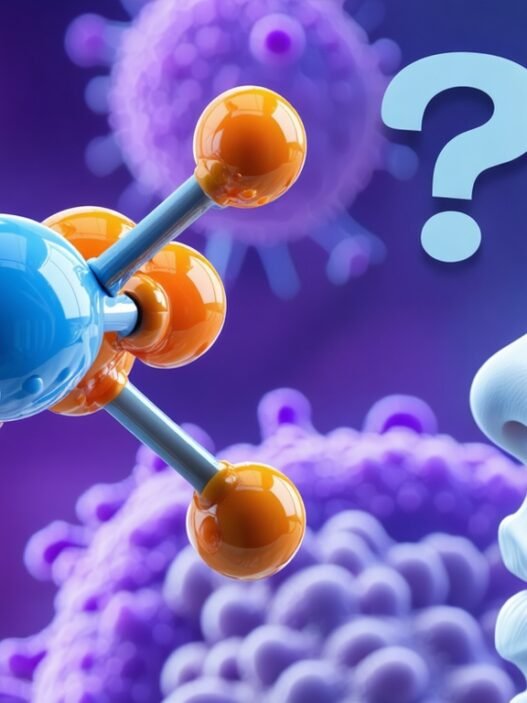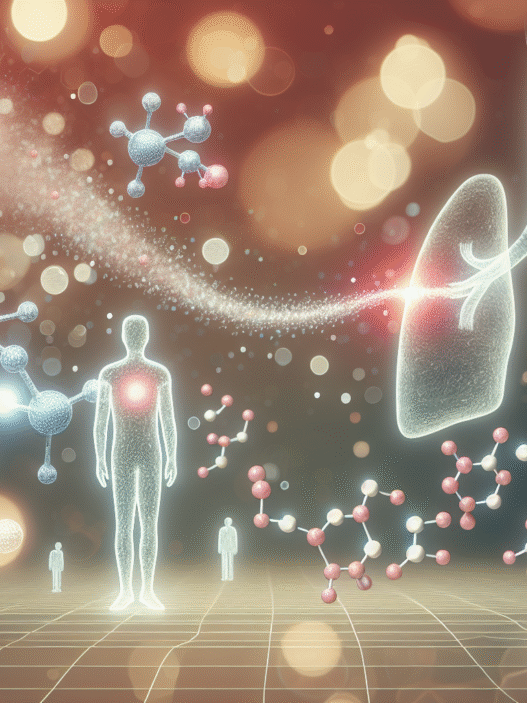Understanding NAC
N-Acetyl Cysteine (NAC) has gained attention for its potential health benefits, particularly as an antioxidant and detoxifier. This section delves into its role and the implications of regulatory actions taken by the FDA.
NAC as an Antioxidant and Detoxifier
NAC serves as a powerful antioxidant, helping to combat oxidative stress in the body. It replenishes glutathione levels, a compound critical for liver function and detoxification processes. This capability makes NAC especially valued among individuals seeking to enhance their liver health and overall longevity. For details on its specific benefits, see our article on what is nac n-acetyl cysteine used for?.
NAC has been studied extensively for its detoxification properties. By promoting the removal of harmful substances from the body, it aids in protecting against cellular damage.
The FDA’s Stance on NAC
On March 31, 2022, the FDA announced that NAC is excluded from the definition of a dietary supplement under the Federal Food, Drug, and Cosmetic Act (FD&C Act). The rationale is that since NAC was not widely marketed as a dietary supplement before being approved as a drug, its current status is considered basically unlawful.
This decision has sparked significant discussion regarding the availability of NAC products. The FDA has determined that while NAC is excluded, it is considering regulatory changes that might allow NAC to be included as a dietary supplement, contingent upon reviews of safety-related concerns (FDA).
Despite this regulatory setback, the FDA has not identified any safety concerns with NAC based on preliminary reviews. For over 30 years, NAC-containing dietary supplements have been sold in the U.S., and consumers continue to seek access to such products. As a result, the FDA intends to exercise enforcement discretion for the sale and distribution of certain NAC-containing products labeled as dietary supplements.
For individuals concerned about how these developments might affect their use of NAC, questions such as is it ok to take nac everyday? and are there any negative side effects of nac? remain pertinent.
Benefits of NAC
N-Acetyl Cysteine (NAC) offers a variety of health benefits, making it a popular supplement among those concerned with detoxification and overall well-being. This section explores its effects on liver and kidney health, mental health and brain function, as well as respiratory health.
Liver and Kidney Health
NAC plays a critical role in the body’s detoxification processes. It is frequently used to help prevent or reduce damage to the liver and kidneys, particularly in cases of acetaminophen overdose, where it protects these organs from detrimental effects. Studies have shown promising results regarding NAC’s ability to reduce the risk of contrast-induced nephropathy in patients with chronic renal insufficiency, especially during procedures like cardiac catheterization.
| Health Benefit | Mechanism |
|---|---|
| Liver Protection | Helps detoxify harmful substances |
| Kidney Support | Reduces damage from medications or procedures |
For individuals seeking to improve liver health, NAC may be especially beneficial, potentially assisting in the reversal of fatty liver conditions (can nac reverse fatty liver).
Mental Health and Brain Function
NAC has been studied for its potential positive effects on mental health and cognitive function. It is believed to improve brain health by regulating glutamate levels and replenishing glutathione, an important antioxidant (Healthline). This makes it a candidate for aiding in conditions such as Alzheimer’s disease and Parkinson’s disease.
| Brain Benefit | Effect |
|---|---|
| Glutamate Regulation | May reduce symptoms related to mental disorders |
| Antioxidant Support | Helps protect brain cells from oxidative stress |
Some research suggests that NAC may also help manage conditions like anxiety (does nac help with anxiety). Many people interested in longevity and anti-aging consider these cognitive benefits as essential.
Respiratory Health
NAC has shown effectiveness as a mucolytic agent, which means it helps break down mucus, making it easier to expel. This feature can be particularly beneficial for individuals with chronic respiratory conditions. It is commonly used to treat conditions that involve excessive mucus, such as chronic obstructive pulmonary disease (COPD) and cystic fibrosis.
| Respiratory Benefit | Mechanism |
|---|---|
| Mucus Breakdown | Aids in clearing airways |
| Reduces Inflammation | May alleviate symptoms in respiratory diseases |
For further reading on NAC’s role in other health areas, check our article on what is nac n-acetyl cysteine used for?.
Overall, the variety of health benefits associated with NAC contributes to its popularity, especially among those focused on detoxification and overall longevity.
Potential Uses of NAC
N-Acetyl Cysteine (NAC) has garnered attention for its potential benefits in various health contexts. This section explores its uses in disease prevention, chronic diseases, and acute conditions.
NAC in Disease Prevention
NAC has been studied for its potential role in disease prevention, particularly regarding its antioxidant properties. It can support the body’s detoxification processes, which may help reduce the risk of certain diseases. Although research is ongoing, some studies suggest that high doses of NAC could exhibit antitumoral activity by increasing T-cell cytotoxicity in conditions such as HIV (American Journal of Pathology).
| Disease/Condition | Suggested Benefit |
|---|---|
| HIV | Potential increase in T-cell activity |
| General wellness | Supports detox and reduces oxidative stress |
NAC in Chronic Diseases
NAC may also play a role in managing chronic diseases, although results have been mixed. It has been assessed in various clinical settings, such as for preventing acute kidney injury related to contrast-induced nephropathy. However, studies indicate that NAC may offer limited or no additive benefits compared to placebo.
| Chronic Disease | Study Findings |
|---|---|
| Chronic renal insufficiency | Limited benefits for preventing nephropathy after cardiac catheterization |
| Systemic inflammatory response syndrome | No significant improvement observed in renal function compared to placebo (Journal of the American Thoracic Society) |
NAC in Acute Conditions
In acute conditions, NAC has been explored as a treatment adjunct, specifically in cardiac scenarios. Studies evaluating NAC Administration before and after cardiac surgery found no significant difference in outcomes related to acute kidney injury when compared to control groups.
| Acute Condition | Study Results |
|---|---|
| Acute kidney injury after cardiac surgery | No significant difference in incidence compared to control |
| Acute kidney injury after angiography | No significant benefits over placebo (American Journal of Cardiology) |
While NAC may have potential applications in disease prevention, chronic diseases, and acute conditions, it is essential to consider the existing data critically. For more information on how NAC is utilized in various health contexts, you can refer to our article on what is NAC N-acetyl cysteine used for?.
NAC and the FDA
Regulatory Actions on NAC
On March 31, 2022, the FDA publicly announced that N-acetyl cysteine (NAC) is excluded from the definition of a dietary supplement under the Federal Food, Drug, and Cosmetic (FD&C) Act. The FDA clarified that because NAC was not widely used as a dietary supplement before its introduction as a drug, it is classified as essentially unlawful. This ruling could have significant implications for those who rely on NAC for its antioxidant properties and potential health benefits.
The FDA’s position stems from NAC’s history as a pharmaceutical. It was approved for use in 1963 as an inhaled treatment for obstructive lung disease (under the brand name Mucomyst) and later in 1985 as an oral treatment for acetaminophen toxicity (Acetadote). Given this history, the FDA argues that NAC does not fit the category of dietary supplements despite being available on the market for over three decades (Nutraceuticals World).
Industry Response to FDA’s Decision
In response to the FDA’s ruling, the dietary supplement industry has expressed significant concern regarding the impact of this decision on NAC availability. Industry representatives are working to gather evidence to demonstrate that NAC was widely used as a supplement or food ingredient prior to the mid-1990s, which could potentially overturn the FDA’s classification of NAC (Nutraceuticals World).
The industry argues that NAC provides extensive health benefits, particularly in promoting liver health and acting as an antioxidant by replenishing glutathione levels in the body (Healthline). Should the FDA maintain its stance, access to NAC supplements might be restricted, leaving many users devoid of a valuable component of their health regimen.
It remains crucial for consumers to stay informed about these developments and consult resources to understand how such regulatory changes may impact their use of supplements like NAC. For those curious about the broader implications of NAC’s use and safety, additional information can be found in sections discussing potential anxiety relief, liver health, and the nature of NAC as a dietary supplement.
Safety Concerns and Considerations
Safety Record of NAC
N-acetyl cysteine (NAC) has a long history of safe use in dietary supplements, with no reported safety concerns according to the FDA. The FDA has indicated that no safety-related issues were identified during its initial reviews of NAC products. The National Institutes of Health (NIH) also recognizes NAC’s safety record, highlighting that it has been used without harm for several decades.
| Aspect | Details |
|---|---|
| History of Use | Decades-long safety record |
| FDA Stance | No safety concerns identified |
| Recognition | Acknowledged by NIH as safe |
Citizen Petitions and FDA’s Response
Industry associations have submitted citizen petitions and comments to the FDA, supporting the continuation of NAC as a dietary supplement. These petitions argue that NAC was available in the marketplace prior to the drug exclusion provision established in October 1994. The petitions indicate a lack of prior safety concerns regarding NAC’s use.
Despite the FDA’s recent decisions, the information from industry associations aims to support NAC’s classification as a dietary supplement, suggesting that its benefits should continue to be accessible to those who seek its advantages for liver health and detoxification.
Future of NAC
Potential Implications
The future of N-acetyl-L-cysteine (NAC) hinges on ongoing evaluations by the FDA regarding its classification and safety profile. Currently, the FDA has determined that NAC is excluded from the dietary supplement definition under the FD&C Act since it was previously approved as a new drug. However, the agency has issued a draft guidance indicating that it may initiate rulemaking to reconsider NAC’s status as a dietary supplement if no safety-related concerns are identified during their detailed review.
If the FDA concludes that NAC is safe for use as a dietary supplement, it could lead to increased availability and a wider range of NAC products on the market. This could greatly impact consumers seeking benefits related to liver health, detoxification, and overall well-being.
The implications of this potential rule change extend not only to consumers but also to manufacturers who have historically included NAC in dietary supplement formulations. Regulatory clarity could facilitate research initiatives and support product development focusing on the myriad benefits of NAC.
NAC Market Outlook
Despite the ongoing regulatory scrutiny, the market outlook for NAC remains optimistic. NAC-containing products have been sold in the U.S. for over 30 years without identified safety concerns based on initial reviews by the FDA (FDA). The FDA’s intention to exercise enforcement discretion regarding NAC-containing dietary supplements indicates that market demand is recognized, and consumers continue to seek access to these products.
As the FDA completes its review, it is likely that the nutritional supplement industry will adapt to any forthcoming guidelines. Should NAC be reinstated under the dietary supplement definition, manufacturers may invest in innovative formulations, broadening the scope of NAC’s applications in health and wellness.
The combination of widespread interest in anti-aging and detoxification aids will help sustain the market for NAC, irrespective of regulatory changes. For those interested in the benefits of NAC, staying informed about its safety and regulatory status will be critical. Additional information regarding the uses and effects of NAC can be found in our articles on what is nac n-acetyl cysteine used for? and is it ok to take nac everyday?.





















